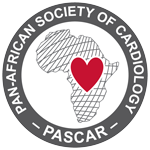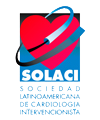FRIENDS OF PCR
As Stent – Save a Life! celebrates its 15th anniversary, its Chairs discuss achievements to date and explain what is needed to help extend the benefits and improve the outlook for even more patients with STEMI around the world:
“From its early beginnings in Europe, Stent – Save a Life! (SSL) has expanded globally, into Asia, Africa and LATAM, such that the community now boasts more than 40 member countries. The very latest three – Bangladesh, Pakistan and Tanzania – were officially acknowledged in Monday’s signing ceremony during the SSL Annual Forum in Paris. The success of our work over the last 15 years has hinged on our tried-and-tested hub-and-spoke model1,2 developed with broad applicability across low- and middle-income countries (LMIC). We have also established protocols, training materials and digital tools that make a huge difference in overcoming infrastructure deficiencies. Another key element to our success is the support provided by committed local and regional cardiologists, along with the dedicated global team. Pilot studies with our model are currently ongoing in Azerbaijan, Egypt and Peru and are planned for Tanzania and Uganda. We have interest in membership from additional candidate countries, including Botswana, Rwanda, Indonesia, Nepal, Oman, Vietnam and Yemen, but a major missing part of the jigsaw puzzle at this stage is funding. We wish to expand our life-saving work even further, but a lack of partnerships/sponsorship is a key issue, despite being vital for the sustainability of the initiative and its activities. The financial input required, before pilot projects are taken forward and expanded by the national government partner, is relatively modest but additional contributions could make a huge difference in these countries where there is currently very little access to PCI. One avenue being explored in the search for new partners is collaboration with philanthropic organisations and foundations, such as the Mission Aviation Fellowship in Uganda. A focus of SSL in the last few years has been to try to address the substantial unmet needs of LMIC and to reduce inequity in healthcare. A session held jointly with SSL yesterday used a regional case-based approach to look at ways to tackle the considerable disparity in access to STEMI for women in LMIC, which is even greater than that documented in better-resourced countries. The extent of healthcare needs in LMIC also prompted the ongoing STEMI reperfusion survey that is being conducted in collaboration with SOLACI in LATAM countries. Discussions on other potential regional collaborations are underway with several African countries, looking at gaining insights into STEMI incidence and treatment resources, organising advocacy activities to raise awareness and developing roadmaps to enhance STEMI management. In order to support the expansion in SSL’s candidacy demand, steps have been taken to strengthen the regional organisation by establishing a central office and by creating a Regional Ambassador, along with two Regional Champions, in Asia. Activities at congresses and courses, including SOLACI, AICT-AsiaPCR, APAC, the China Chest Pain conference, the Africa Heart Team conference, the Azerbaijan Annual Society meeting and GulfPCR-GIM have all led to wider visibility of SSL’s efforts at a global level. One of the most innovative ongoing initiatives is the development of the SSL Travel App, in collaboration with Cardiology Centers Netherlands, which is being designed to enable cardiac patients travelling abroad to proactively identify the nearest PCI centre should they need to find acute coronary care. The plan is to eventually also include the patient’s medical information on the app so that the local treating physician has easy access to it in an emergency situation. The next 15 years could be even more successful for SSL, but we need sufficient funding. We welcome support from the PCR community to help us make new connections for our continued global expansion.”
Chairs, Stent – Save a Life!






